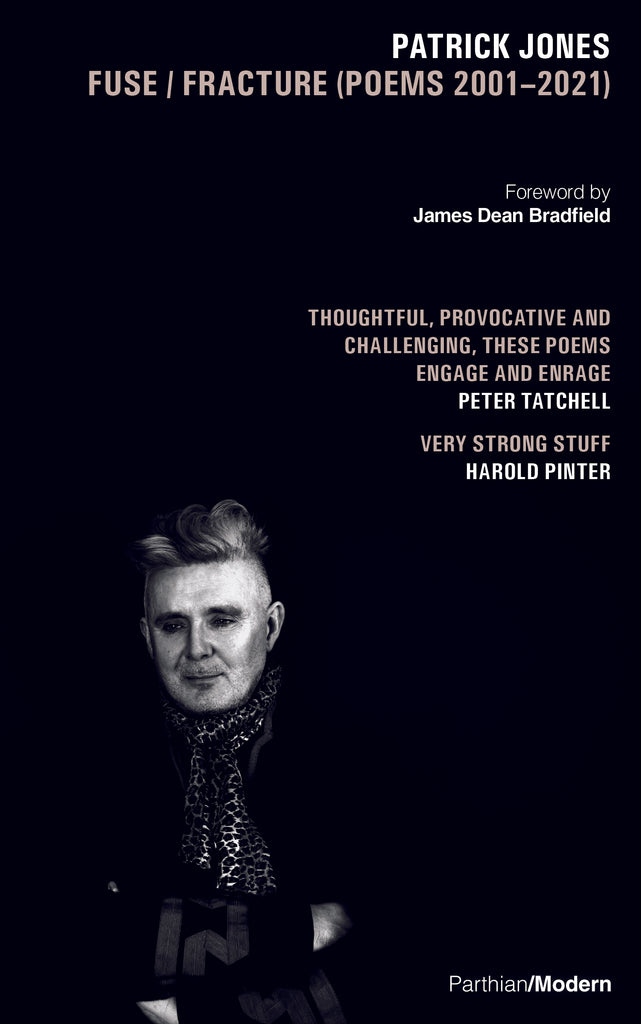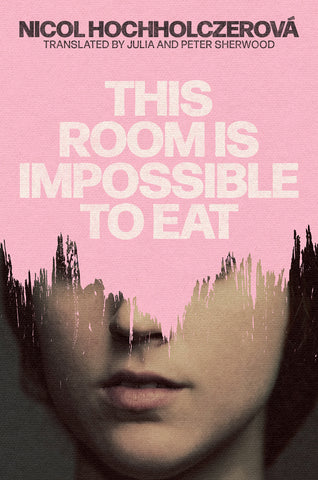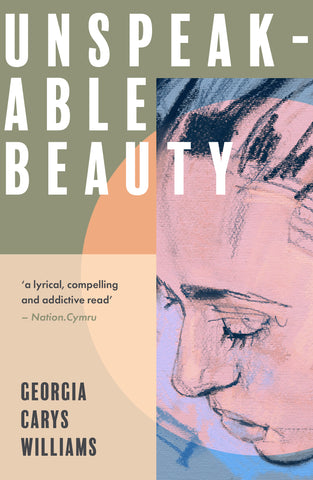Interview with Patrick Jones, Author of Fuse/Fracture (Poems 2001-2021)

Selected Poems: 20th Anniversary Edition with a Foreword by James Dean Bradfield.
Within this collection of skilfully stitched poetry ‒ spanning a twenty-year career ‒ you hear woven through it striking elements of technique, strategy, and movement. There is pain, a sense of grief and belonging that each creative strives for, a need to be understood, to have an audience to connect and to engage with our work. They stand as witness to their surroundings.
These poems hold as a platform to rebel, to protest, and to illuminate as the forms evolve.
The addition of a foreword in this anniversary edition serves as a framework to the collection, casting an eye across the span of years and the wealth of poetry that has been produced.
Parthian intern, Billie Ingram-Sofokleous, caught up with Patrick to ask him some questions.
What was your favourite poem to write and why?
‘A Little Patience’ – as it helped me deal with a very painful situation with humour and sort of enabled me to look more objectively at the hurt.

And ‘To be or Not’ because it is such a travesty that if you are not in Set 1 you are denied the opportunity to enjoy Literature.

How do you feel your writing has changed over the years?
It has become more reflective and less angry rants at the world even though there still is so much to rant about – I have become more aware of craft and of editing my words to form a more coherent expression.
Do you write to find closure or another sense of meaning through your poetry for yourself?
Possibly ‒ closure is a big thing, and I wouldn’t want to place too much expectation on the writing of a poem but definitely to explore feelings and things that happen in my life and the world. For example, the poems detailing the loss of my parents aren’t really closure, not sure if that is even possible with grief, but they ‘give sorrow words’ as Shakespeare wrote and that is part of the emotional journey we take, for sure. I guess they take us out of ourselves and into ourselves sometimes in the same poem. Cheaper than therapy too!
Who can you imagine reading your poems other than yourself?
Anyone and everyone, though I have never seen myself as writing merely for other writers like some do ‒ all are welcome.
What’s your guilty pleasure?
Homes Under the Hammer with sugary porridge!
Good quality crisps!
And buying new notebooks
Who is your inspiration?
So many – from my dear parents to my children to Allen Ginsberg, James Baldwin, Tennessee Williams, Walt Whitman, Idris Davies, Joe Strummer, Paul Robeson, Rumi, Emily Dickinson, Benjamin Zephaniah, Neil Peart, Albert Camus, Jack Kerouac, Mary Oliver, Denise Levertov and Gary Barlow (just joking!)
What are you reading at the moment that you would recommend for our next read?
Currently reading Mary Oliver Selected Poems and Roger Robinson A Portable Paradise
I have really delved into neuroscience and mental health and wellbeing these last two years so it would be Bessel Van Der Kolk’s The Body Keeps The Score, Rebecca Solnit’s Wanderlust and The Food Mood Connection by Uma Naidoo.
Has anything changed your perspective on writing?
Death of my parents sort of put things into perspective as it made me think ‘‘What is the point of all these words?” They all end up in a charity shop.
What is your writing routine?
Always up early. So, scribble then with tea and toast. Best ideas whilst swimming and in the bath. No hard and fast routine; just go with the flow of words and ideas. When writing a play, I'm more disciplined and try to write two pages a day.
What has been the best piece of feedback, constructive or otherwise, you have received?
''Never apologise for a poem'' – Peter Finch
Are there any topics you feel you avoid?
No.
What has been the most challenging thing you have found yourself writing about?
I think the breakdown of my marriage, being in a coercively controlling relationship and the loss of my parents, but as James Baldwin said, “You think your pain and suffering are unprecedented in the history of the world, then you read”. So, one goes on…
Patrick Jones was born in Tredegar in 1965. Jones set up the Blackwood Young Writers Group based at the Blackwood Miners Institute in 1993.
He taught Adult Literacy at Blackwood Community College and the Ebbw Vale Institute. Jones is active in setting up various reading and writing workshops throughout Wales from schools to youth centres.
He has also worked as the Creative Literacy Worker for the Cynon Project and in 1988 was writer in residence at Swansea College. He has worked in collaboration with Hafan Cymru, Ty Hapus, Literature Wales, and The Welsh National Opera.
You can buy the book here:
He is also at an in-person event People and Books at Chapter Arts Centre in Cardiff on the 11th December. You can meet Patrick at 3:30 alongside a myriad of talented authors throughout the day.

You can book your place here:
For all other sessions, you can find here:



